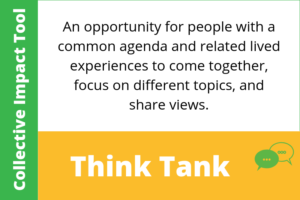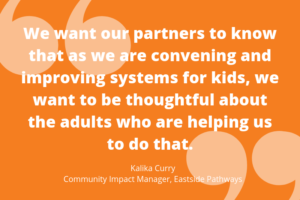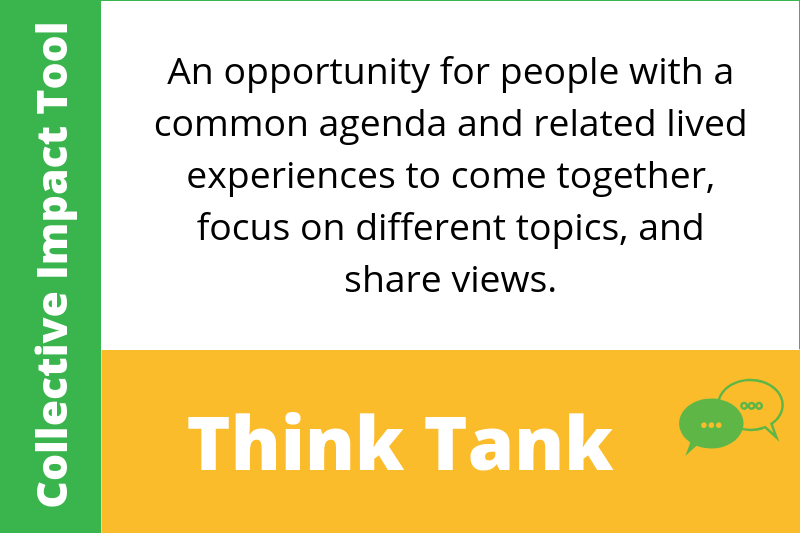 In the last few months, as Eastside Pathways partners have been meeting to develop the organization’s strategic plan, there have been many discussions around impact and outcomes. One observation was the difficulty of interjecting racial equity and diverse ability in the work. To understand better the issues facing adults working with kids, Eastside Pathways convened two think tanks—one race based and one for diverse abilities—to give the community the opportunity to voice opinions anonymously, helping them share more safely deeply personal content.
In the last few months, as Eastside Pathways partners have been meeting to develop the organization’s strategic plan, there have been many discussions around impact and outcomes. One observation was the difficulty of interjecting racial equity and diverse ability in the work. To understand better the issues facing adults working with kids, Eastside Pathways convened two think tanks—one race based and one for diverse abilities—to give the community the opportunity to voice opinions anonymously, helping them share more safely deeply personal content.
“We talk about how to change outcomes for kids, but we realized that the systemic inequalities that affect kids also affect adults,” informs Kalika Curry, Community Impact Manager at Eastside Pathways.
As a person of color, Kalika, who has been facilitating the think tanks, says, “It was acknowledging the difficulty of being an advocate while at the same time being a target. Because we are not just working on behalf of kids of color or on behalf of kids with diverse abilities, we are also persons of color and persons with diverse abilities. Many of the issues that kids are experiencing, the adults who are working for them are struggling with as well. We wanted to create safe spaces for the people who identified as people of color and for the people who identified as having diverse abilities, so they could share their experiences, both personal and professional.”
Race-Based Think Tank
The discussions at the race-based think tank revolved around the challenges that people were experiencing, their concerns, and some of the benefits. The conversation focused mainly on how you have to become a part of the system to be able to have the influence and formal authority to disrupt it.
And that’s challenging. For example, if you are planning a campaign about disrupting racial inequality in a partnership collaborative and you take it back to your organization, your organization may not be ready to tackle the issue. How then do you build support and take action?
Another issue surfaced about the limiting assumptions that some people make. For example, if a person has an accent, an assumption might be made that they lack proficiency in English. “It is a poor assumption that only people in the United States speak English. It shows a lack of global awareness,” says Kalika.
Diverse Abilities Think Tank
The second think tank focused on diverse abilities, and participants had equally challenging experiences to share.
There was some discussion around redefining what it means to show up at meetings and what emerged were “missing pieces.” Does everyone in the room have the tools they need to participate – digitally or physically? Is having a wheelchair ramp enough? Is language a barrier for some? Is a mic available for people for whom projecting their voice might be a challenge?
If you know someone in a wheelchair will be attending the meeting, do you leave a space at the table so that it’s easy for them to join in? “It’s like when you walk into a meeting, you know there will be a chair for you, so why shouldn’t everyone have that same experience?” asks Kalika.
Another interesting sharing was around the availability of tools that disrupt the social norms around disabilities. For example, if you need eyeglasses, your eyes are not able. However, because glasses are readily available and wearing glasses is quite common, we don’t think of it as a disability. Conversely because wheelchairs are less common and less accessible, anyone who uses a wheelchair is considered disabled. It’s interesting to think how things that are common and readily available are “normalized.”
Moving Forward
 An overarching takeaway from the think tanks was the need for us to be thoughtful about the adults who work in our systems to disrupt them.
An overarching takeaway from the think tanks was the need for us to be thoughtful about the adults who work in our systems to disrupt them.
As we work on systems change, one of the things we ask people is to re-imagine their lives. It’s hard for adults to ask kids to re-imagine their lives when they (the adults) are still going through trauma. We talk about not having role models or mentors for kids of color, but how much more challenging is that for kids or people with diverse abilities? How many of either community are in a position of authority or leadership?
When we say, “bring your full self to a meeting,” we are usually talking about attention and positivity. While we work through these systemic inequalities and we invite everyone to the table to uncover root causes and consider possible solutions, it should be about bringing everything, the positivity and the trauma. We learn from both and understanding and exploring both can help us best disrupt and change systems for the better.

